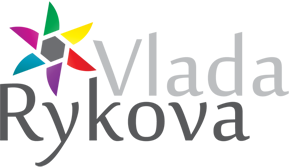Маркетинг в епоху блокчейну: Як технології розподіленого реєстру змінюють правила гри у світі реклами та просування
- 1 Що таке блокчейн та як він працює?
- 2 Переваги використання блокчейну у маркетингу
- 3 Як блокчейн може змінити рекламний ринок
- 4 Застосування технології блокчейну для посилення лояльності клієнтів
- 5 Блокчейн та прозорість рекламних кампаній
- 6 Блокчейн у соціальних медіа: нові можливості для брендів
- 7 Приклади успішного використання блокчейну у маркетингових кампаніях
- 8 Майбутнє блокчейн-маркетингу: прогнози та тренди
- 9 Як розпочати впровадження блокчейну у вашу маркетингову стратегію?
Що таке блокчейн та як він працює?
Блокчейн – це інноваційна технологія розподіленого реєстру, що дозволяє зберігати записи блоків, які пов’язани один з одним ланцюжком. Кожен блок містить інформацію про транзакції та має унікальний хеш-код, який пов’язує його з попереднім блоком. Цей ланцюжок блоків є децентралізованим та надійним способом зберігання даних.
Як працює блокчейн? Коли нові транзакції надходять до системи, вони перевіряються учасниками мережі та додаються до нового блоку. Після цього блок чіпляється до попереднього блоку за допомогою хеш-коду, створюючи постійний і незмінний запис. Це забезпечує високий рівень безпеки та цілісності даних.
Переваги використання блокчейну у маркетингу
- Прозорість та довіра: однією з ключових переваг блокчейну є можливість забезпечити прозорість у рекламних кампаніях. Кожна транзакція та зміна даних фіксується у блокчейні та доступна для всіх учасників мережі. Це знижує ризики шахрайства та підвищує довіру споживачів до рекламних кампаній.
- Поліпшена цільова реклама: блокчейн дозволяє збирати точніші та надійніші дані про споживачів. Це допомагає компаніям створювати більш персоналізовані та ефективні рекламні кампанії.
- Боротьба з фродом: блокчейн забезпечує надійну аутентифікацію та ідентифікацію користувачів, що допомагає запобігати фроду в рекламних мережах та знижувати витрати на боротьбу з ним.
Як блокчейн може змінити рекламний ринок
- Усунення посередників: блокчейн дозволяє прибрати посередників із рекламних угод, що скорочує комісії та збільшує ефективність розподілу рекламного бюджету.
- Мікрореклама: за допомогою блокчейна можна проводити рекламу, оплачуючи за кожен клік або показ безпосередньо, без участі посередників.
- Децентралізовані рекламні мережі: створення децентралізованих рекламних мереж, де учасники можуть встановлювати правила, підвищує конкуренцію і знижує залежність від великих гравців.
Застосування технології блокчейну для посилення лояльності клієнтів
Застосування технології блокчейну у маркетингу надає унікальні можливості для посилення лояльності клієнтів. Одним із найбільш ефективних способів досягти цієї мети є створення програм лояльності на основі блокчейну.
Суть полягає в тому, що компанії можуть випускати власні токени на блокчейні, які клієнти можуть заробляти при здійсненні покупок, виконанні певних дій або навіть за активну участь у товаристві бренду. Ці токени можуть бути обмінені на товари, знижки, ексклюзивні пропозиції чи навіть участь у голосуваннях та рішеннях компанії.
Завдяки блокчейну, такі програми стають абсолютно прозорими та надійними. Клієнти можуть легко відслідковувати свій баланс токенів та історію їх використання, що створює довіру до бренду. Крім того, блокчейн забезпечує безпеку та неможливість підробки токенів, що захищає як інтереси компанії, так і клієнтів.
Блокчейн та прозорість рекламних кампаній
Блокчейн сьогодні відіграє ключову роль у забезпеченні прозорості рекламних кампаній. Ця технологія створює надійний та неможливий для підробки цифровий слід кожної транзакції та зміни даних у світі реклами. Кожна рекламна транзакція, чи то розміщення реклами, показ чи клік, записується в блокчейні та стає доступною для всіх учасників мережі. Це означає, що рекламодавці, видавці та агенції можуть легко та точно відстежувати всі етапи своїх кампаній.
Прозорість блокчейну дозволяє боротися з шахрайством, що є серйозною проблемою в рекламній індустрії. Всі учасники можуть бачити історію змін даних та переконатися в їхній справжності. Це знижує ризики для рекламодавців та збільшує довіру до рекламних платформ.
Крім того, блокчейн дозволяє покращити процеси верифікації та аутентифікації користувачів, що скорочує кількість небажаних та фальшивих кліків та показів. Завдяки блокчейну рекламні кампанії стають більш ефективними і прозорими, що приносить користь як рекламодавцям, так і кінцевим споживачам.
Блокчейн у соціальних медіа: нові можливості для брендів
Блокчейн надає соціальним медіа нові та захоплюючі можливості для брендів, які прагнуть покращити взаємодію з аудиторією та підвищити свою конкурентоспроможність. Однією з ключових областей застосування блокчейну у соціальних медіа є створення децентралізованих платформ для спілкування з користувачами.
Такі платформи дозволяють брендам встановити більш прямий та відкритий зв’язок з аудиторією, забезпечуючи повну прозорість та контроль над даними та контентом. Крім того, блокчейн може бути використаний для створення систем нагороди користувачів за їхню активність та внесок у співтовариство, що стимулює участь та лояльність.
Створення токенів на блокчейні дозволяє брендам розробляти власні екосистеми та економіки у соціальних медіа, де користувачі можуть обмінювати токени на контент, послуги чи навіть брати участь у голосуваннях з питань розвитку платформи. Це дозволяє брендам зміцнити взаємини з аудиторією та створити більш активну та віддану спільноту.
Крім того, блокчейн забезпечує безпеку та прозорість монетизації контенту, що може бути особливо важливим для контент-творців та медіа-компаній. Він також допомагає у боротьбі з проблемами фейкових новин та маніпуляцією інформацією, що сприяє підтримці довіри до соціальних медіа.
Приклади таких соціальних мереж вже існують, про одну з них я писала раніше: “Mastodon: як працює децентралізована соціальна мережа”
Приклади успішного використання блокчейну у маркетингових кампаніях
Існує кілька прикладів успішного використання технології блокчейну у маркетингових кампаніях, які демонструють потенціал цієї інноваційної технології. Цікавий приклад – співпраця Coca-Cola та SAP для використання блокчейну в ланцюзі постачання. Ця ініціатива дозволяє бренду Coca-Cola та його клієнтам відстежувати шлях продукту від виробника до споживача з високим ступенем прозорості. Завдяки цьому, клієнти можуть бути впевнені в якості та справжності продуктів, що підвищує довіру до бренду.
Ці приклади демонструють, як блокчейн-технологія може бути успішно інтегрована в маркетингові стратегії компаній, що призводить до покращення взаємодії з клієнтами, підвищення довіри та зниження ризиків.
Майбутнє блокчейн-маркетингу: прогнози та тренди
Майбутнє блокчейн-маркетингу обіцяє бути захоплюючим та інноваційним, з низкою прогнозів та трендів, які можуть переформатувати рекламну індустрію. Одним із ключових трендів є збільшення кількості децентралізованих рекламних мереж, які нададуть рекламодавцям більший контроль та знизять залежність від великих платформ, таких як Google та Facebook.
Іншим важливим напрямом майбутнього блокчейн-маркетингу є використання штучного інтелекту (ШІ) у поєднанні з блокчейном. Це дозволить створювати більш точні та персоналізовані рекламні кампанії, а також покращувати аналітику та прогнозування результатів.
Також очікується зростання використання мікрореклами, де платежі за покази та кліки проводитимуться безпосередньо на блокчейні без посередників, що знизить комісії та збільшить ефективність розподілу рекламного бюджету.
З розвитком технології блокчейн, ми можемо очікувати посилення тенденції до підвищення прозорості в рекламі та боротьби з шахрайством, що стане стандартом для більшості рекламних кампаній.
Як розпочати впровадження блокчейну у вашу маркетингову стратегію?
Щоб розпочати впровадження блокчейну у вашу маркетингову стратегію, необхідно слідувати кільком ключовим крокам.
- Визначення цілей: спочатку визначте, яких конкретних цілей ви хочете досягти за допомогою блокчейну. Це може бути покращення прозорості рекламних кампаній, посилення лояльності клієнтів, зниження витрат чи інші завдання. Чітке визначення цілей допоможе зорієнтуватися під час інтеграції технології.
- Дослідження платформи: оберіть відповідну блокчейн-платформу або рішення, яке відповідає вашим потребам. Це може бути публічний блокчейн, приватний чи гібридний. Проведіть ретельне дослідження і виберіть найкращий варіант.
- Розробка стратегії: розробте докладну стратегію інтеграції блокчейну. Визначте етапи впровадження, бюджет, відповідальних за проект та часові рамки. Це допоможе керувати процесом ефективніше.
- Навчання співробітників: забезпечте навчання співробітників, щоб вони розуміли принципи роботи блокчейну і могли брати активну участь у процесі впровадження. Це важливо для успішної реалізації проекту.
Важливо розуміти, що впровадження блокчейну може вимагати часу та ресурсів, але при правильному підході воно може значно покращити ефективність ваших маркетингових кампаній та посилити ваші стосунки з клієнтами.
Експерт в області інтернет-маркетингу. Керівник маркетингового агентства MAVR.
Бізнес-ступінь “Майстер ділового адміністрування” (MBA).




